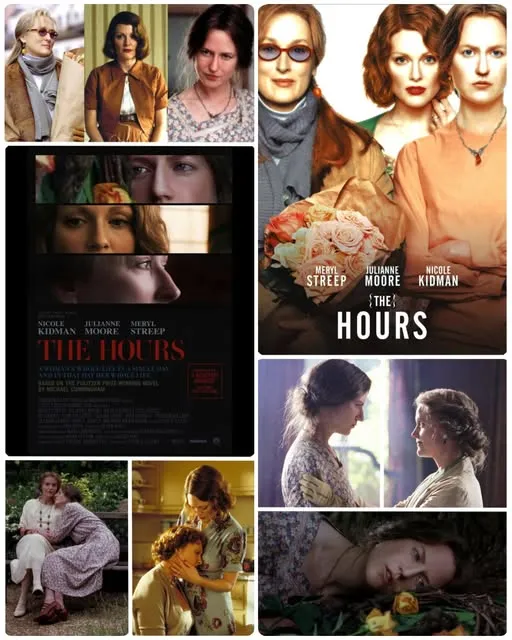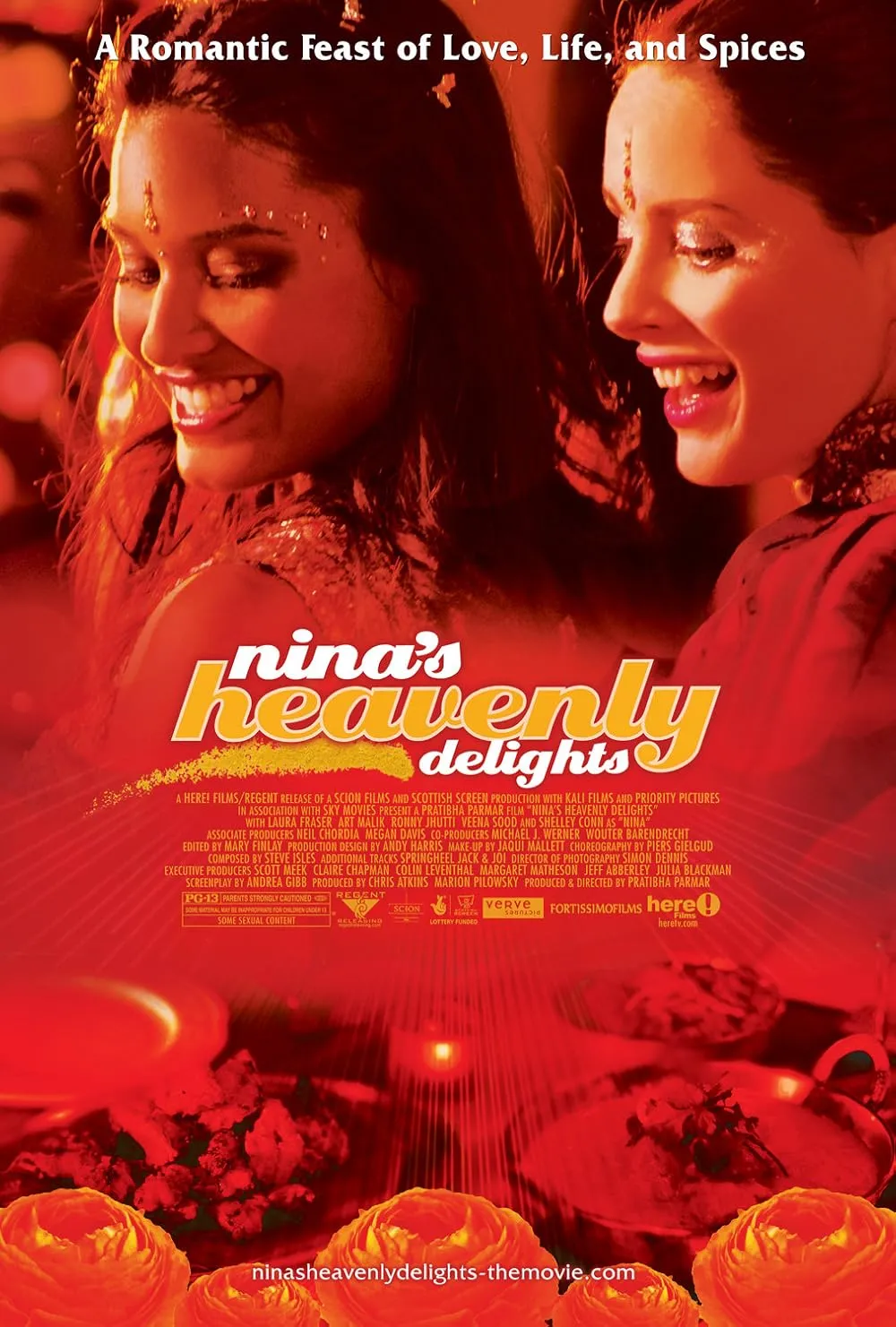The Hours (2002)
The Hours (2002), directed by Stephen Daldry, is a deeply moving and intricately woven drama that explores the lives of three women across different time periods, each connected by Virginia Woolf's novel Mrs. Dalloway. The film delves into themes of mental illness, identity, the complexities of relationships, and the pressures faced by women in society. The narrative unfolds across three parallel storylines, each linked by the novel and by the women’s struggles with their inner lives. The first is set in 1923 and follows Virginia Woolf (Nicole Kidman), as she writes Mrs. Dalloway in her English countryside home. Woolf, battling mental illness, is increasingly overwhelmed by her personal demons and her inability to reconcile her creative genius with her sense of self-worth. We see her as she begins to write, reflecting on her own struggles with depression, her sexuality, and her complex relationship with her husband, Leonard Woolf (Stephen Dillane). Throughout this section of the film, the audience witnesses Virginia's internal battles, her desire for freedom, and her looming fear of death, which will eventually lead to her tragic end. The second storyline takes place in 1951, where we follow Laura Brown (Julianne Moore), a 1950s housewife in Los Angeles. Laura is in the throes of her own existential crisis. She is married to Dan (John C. Reilly), a kind but uninspiring man, and they have a young son, Richie. Despite having a seemingly perfect suburban life, Laura feels trapped in her role as a wife and mother. Her sense of dissatisfaction and yearning for something beyond the confines of domesticity leads her to read Mrs. Dalloway, which deeply resonates with her. The novel becomes a way for her to confront her inner turmoil, as she relates to the themes of loneliness and the search for meaning in her own life. Laura’s struggles with her identity and the repression of her desires ultimately drive her to make a drastic decision that impacts her life and her family profoundly. The audience sees her dealing with her personal discontent and the difficult decisions she faces about her future and her relationship with her family.

The final storyline is set in 2001 and follows Clarissa Vaughan (Meryl Streep), a modern-day woman living in New York City. Clarissa is a successful magazine editor, and her life seems to be filled with accomplishments. However, beneath her polished exterior, Clarissa grapples with the loss of a past love, her strained relationships with those around her, and a deep sense of emptiness. Clarissa’s life is haunted by the ghost of a former lover, Richard (Ed Harris), a poet who is dying of AIDS. Richard had once been the love of Clarissa's life, but their relationship ended tragically, leaving Clarissa to live with the consequences of their lost love. Like the other women, Clarissa is profoundly affected by Mrs. Dalloway and finds herself relating to the themes of the novel, particularly the way it reflects her own experiences of grief, loneliness, and longing. As she prepares for a party in honor of Richard, Clarissa confronts the various relationships in her life, especially her relationships with her daughter and her former lover, ultimately coming to terms with her choices and her sense of identity. The Hours weaves these three narratives together seamlessly, using Virginia Woolf's novel as both a narrative device and a thematic framework. The film highlights the interconnectedness of the characters’ lives and explores how each woman deals with her own existential struggles in different ways. While the settings, time periods, and specific circumstances vary, all three women are haunted by the same feelings of dissatisfaction and the desire for something more. They each grapple with the pressures placed on them by society and their internal conflicts, ultimately facing a choice between conforming to societal expectations or breaking free to live more authentically. The film also underscores how the novel Mrs. Dalloway provides an emotional and intellectual touchstone for each of the characters, allowing them to explore their deepest desires, regrets, and fears. As the three women’s stories unfold, we witness their emotional journeys and the pain that comes with living lives that often feel constrained by the roles they are expected to play.

In conclusion, The Hours is a poignant exploration of the inner lives of women, their struggles with identity, and their quest for meaning in a world that often limits their potential. The performances from Nicole Kidman, Julianne Moore, and Meryl Streep are extraordinary, each capturing the complexity and depth of their respective characters with nuance and grace. The film’s use of Mrs. Dalloway as both a literary reference and a thematic undercurrent is masterfully executed, creating a deep connection between the past, present, and future of the characters’ lives. Stephen Daldry’s direction is elegant and thoughtful, using subtle visual cues and pacing to draw the audience into the emotional depths of the narrative. The Hours is a film that meditates on the passage of time, the choices we make, and the lives we leave behind, all while capturing the profound impact of literature and the shared experiences of women across generations. It is a beautifully crafted film that resonates long after the credits roll, leaving the viewer reflecting on the nature of love, loss, and the complexity of the human experience.




-1740450786-q80.webp)